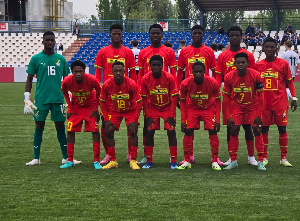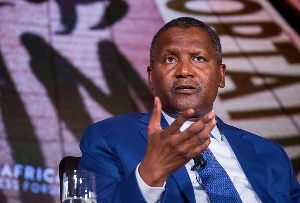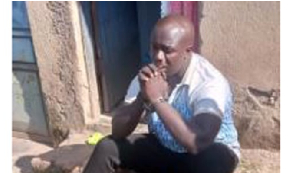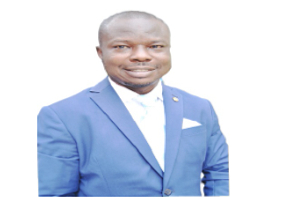- Home - News
- TWI News | TV
- Polls
- Year In Review
- News Archive
- Crime & Punishment
- Politics
- Regional
- Editorial
- Health
- Ghanaians Abroad
- Tabloid
- Africa
- Religion
- Election 2020
- Coronavirus
- News Videos | TV
- Photo Archives
- News Headlines
- Press Release
General News of Tuesday, 15 January 2002
Source: .
Ghana has no water rights with neighbours -Dr Biney
Ghana has no water rights with her neighbours in the Volta basin, a situation that could have disastrous effect on the sustainable development of the basin, the Director for Water Research Institute, said on Monday.
There is no agreement on the sharing and usage of tributaries of the Volta River that start from Mali, Burkina Faso, Cote d'Ivoire, Benin and Togo and empty into the Gulf of Guinea.
Dr Charles Augustus Biney, the Director, who opened a five-day sub-regional workshop on Integrated Water Resources Management of the Volta basin, (IWRM) said the increase in population was causing an increase in water demand in the various countries.
"In the face of increasing demand for water resources and accompanying deterioration of quality of the resource, the IWRM is currently the best way to achieve a balance between the use of resources for livelihood of the increasing population of the basin," Dr Biney said.
He cited an example where some hydroelectric power projects could be starved of the needed height of water for their operations whilst flooding could occur when spillways of some dams were opened during the rainy season.
The workshop, the third to be convened in Ghana by the Council for Scientific and Industrial Research's Water Research Institute (CSIR/WRI) within the framework of the International Hydrological Programme (IHP) and the participation programme of UNESCO is aimed at finding solutions to the emerging problems. It has brought together about 30 technical representative of the IHP National Committees from Ghana, Mali, Cote d'Ivoire, Burkina Faso, Benin Togo.
The participants are to share their knowledge and experiences on the sustainable management of the resources of the basin to support present and future socio-economic development needs of the countries that share the Volta basin.
Dr Biney said IWRM was the process that promoted the coordinated development and management of water and related resource in order to maximise the resultant economic and social welfare in an equitable manner without compromising the sustainability of the ecosystems.
He urged the participants not to make this workshop another paragraph in their already impressive Curriculum Vitas, "but to strive directly or indirectly, make use of the knowledge gained to support the socio-economic development of the Volta basin and the sub-region as a whole."
Dr Martin Agyemang Odei, Executive Director, National Science and Technology Foundation, said Ghana believed that to harness the resources of the Volta basin efficiently, the development and management of the water resources and the basin have to be rationalised and harmonised.
''We believe in sharing the benefits of the resources within the basin, for example, the possible extension of power supply from Ghana to other riparian states where feasible," he said. Dr Odei said there could also be extension of potable water supply from the Volta River in Ghana to the neighbours that needed it.
"We believe that when the riparian countries have a stake in the benefits of the resource they would be prepared to conserve and manage the water resources of the basin for the sustainable development of the riparian nations'', he said.
Mr Robert R. Bannerman, a consultant with the Water Resources Consultancy Limited, who chaired the function, called for trust and co-operation among the riparian neighbours to be able to provide for the socio-economic needs of the people.
The trust and co-operation could be achieved by sharing information and resources, he said.










